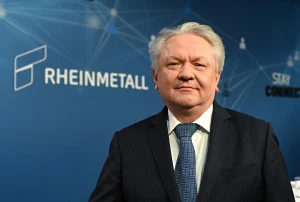
In search of "truce"
Today, it is evident that there is a growing desire from various sides to "end this war"
This reflects the desire of both the West and Russia. Therefore, in the coming months, overt and covert discussions will intensify regarding the conditions under which the war can and should be ended.
Two recent examples:
- Lavrov's statement: “Return the Russian language and the Russian church.”
Why is this so important to the Kremlin? Because at the end of the war, it needs at least something to present to Russians as its victory - "what we fought for." If the question arises afterward, "So what did we fight for?", then Putin is finished, and quite possibly, so is Russia within its current borders. Lavrov's statement is a search for the points of such a "victory."
- An article in The Economist, kindly translated by Ukrainian Pravda.
The article begins with a manipulation: Ukraine has neither the people nor the weapons to return to the 1991 borders.
Why is this a manipulation?
Because the number of people needed depends on the ferocity of Russian resistance, which in turn depends on the quantity and quality of weapons available to Ukraine. Both factors are currently being strictly filtered and controlled by the West to prevent Ukraine from having either "too little" or, God forbid, "too much."
So, we write, “Ukraine does not have enough weapons to reach the 1991 borders,” but we read, “Ukraine has not been given enough weapons for this and will not be given.”
Then the main thesis follows: “Give Ukraine NATO membership and much more weaponry than it has now (so it has weapons!), but let it forget about the territories that Russia currently controls.”
This is another attempt to find a formula that will satisfactorily (?) explain "what we fought for" to both Russians and Ukrainians. For the former, it is Ukrainian territory (to preserve the Putin regime and thus the integrity of the Russian Federation), and for the latter, a "consolation prize": NATO membership and some form of guarantee that there will be no further losses of territory. "The wolves are relatively full, and the sheep are relatively safe."
Of course, this is just one proposal among many, and it is far from certain that it will be accepted as a basis. But this confirms the thesis I started with: in the coming months, explicit and implicit discussions on the conditions under which we should attempt to end this war will become more heated. Consequently, there will be a lot of information manipulation surrounding this issue. Our job is not to fall for it.
About the author. Oleksii Panych, philosopher, member of the Ukrainian Centre of PEN International, blogger.
The editors do not always share the opinions expressed by the authors of the blogs.
- News











































